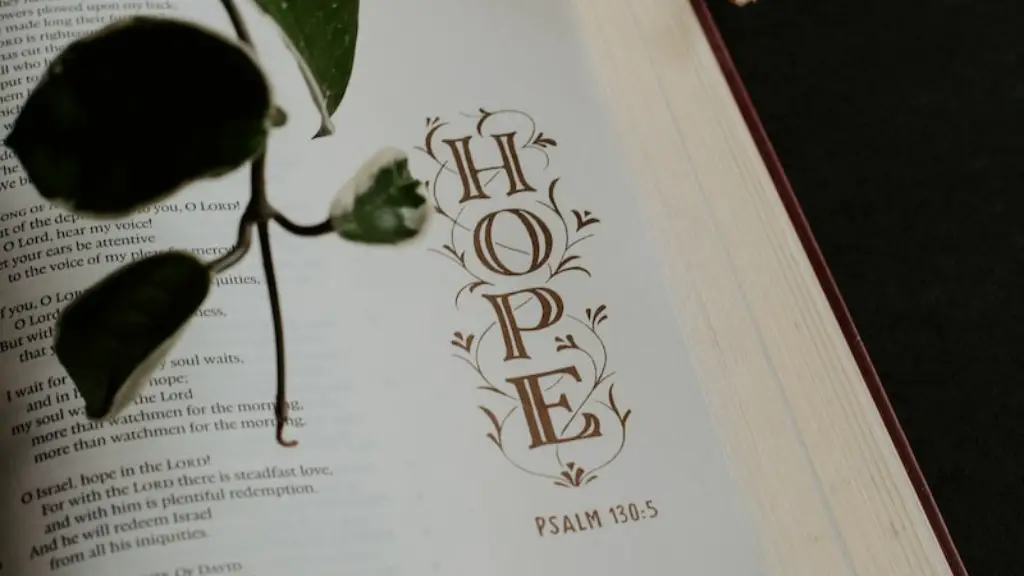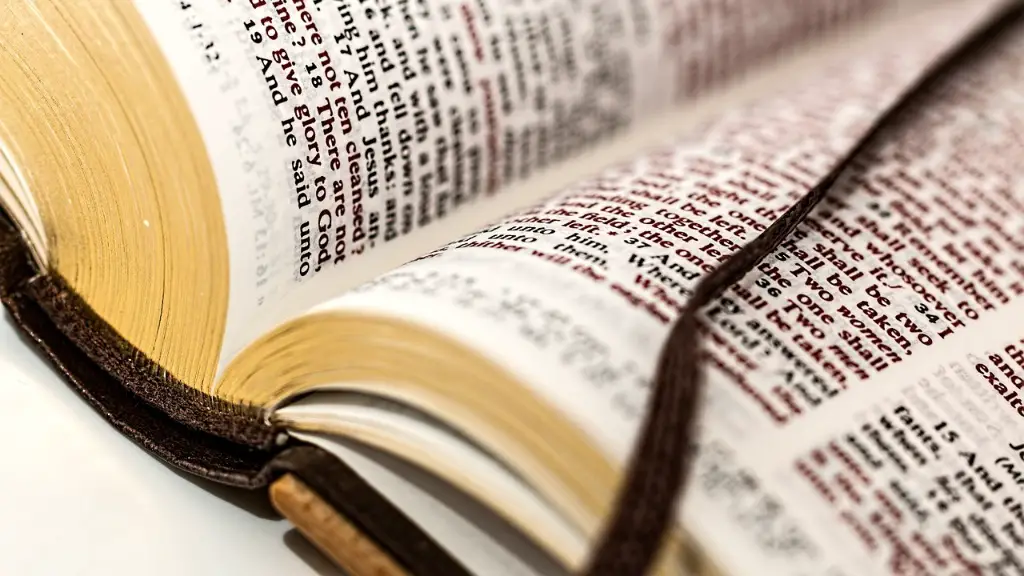Who was Swallowed By The Whale in The Bible? The Bible is a book filled with stories of many men, women, and children. But one of the most famous is the story of a man named Jonah who was swallowed by the whale. This story is well known by most due to its retellings in film and literature, but what is it about this story that is so intriguing? Is there any significance to the tale? What did Jonah learn from his experience?
To understand this story, one must first go back to the book of Jonah in the Old Testament. The story of Jonah is found in the book of the Old Testament that has the same name. In this book, it begins by telling of God’s call to Jonah to go and preach repentance to Ninevah, an ancient city. This city was known as a center of wickedness, but God chose Jonah to deliver his message of love and repentance. Jonah, however, wanted no part of this and chose to flee in the opposite direction. Instead, he boarded a ship bound for Tarshish.
But God would not let Jonah escape his divine mission. When a great storm hit, Jonah knew that it was a sign from God that he must return to his mission. Jonah, being a servant of God, conceded and accepted his punishment for fleeing his mission. The sailors, knowing that Jonah was the cause for all this chaos, decided to rid themselves of him by throwing him overboard into the raging sea. Little did they know, even the mighty sea was not enough to keep Jonah from his destiny.
It was then that a large whale swallowed him whole and brought him to safety. Jonah found himself in the belly of this giant creature for three days, three nights. During this time, Jonah praised God and began to realize what his mission was; one of repentance and forgiveness. This newfound revelation filled him with newfound courage and powerfully inspired his mission when he emerged from the whale after three days. God had used this journey to re-instill Jonah’s faith and show him the error of his ways.
From the story, it is clear that the whale symbolizes a higher power and divine purpose. No matter how much Jonah tried to escape his mission, he could not escape God’s plan. No matter what danger Jonah faced, he was saved and given a chance to fulfill his duty. The whale also serves as a powerful reminder that God is with us and will not leave us even in our darkest hour.
Often times, people are confronted with difficult decisions and feel like they are sinking in their own sea of troubles. The story of the whale can serve as an outlet for hope and reassurance, showing us that if we turn to God, we will be saved from the storm and ultimately, we will be doing his will and serving his purpose.
Beliefs in Other Cultures
Whales have been seen as strong symbols of power and protection in many cultures throughout the world. In Polynesian culture, whales represent strength and prosperity while in China they bring luck, fertility, and good fortune. In an Inuit creation story, Igaluk the moon spirit is said to take the form of a whale while the ancient Romans believed that whales had prophetic abilities. While Jonah’s story can be interpreted with the universal power of God, there is much to learn in looking at whales through the lenses of different cultures.
In African diasporic religions, whales represent a powerful connection with spirituality due to their size and deep connection to the sea. Oftentimes, whale figures are found prominently in rituals for spiritual guidance and protection. In some African and Native American cultures, whales are seen as being powerful spiritual healers. Thus, the whale can be seen as a link to the divine and a reminder that no matter how deep our troubles, God is always closer than we think.
On a similar note, Native American cultures revere whales as powerful spiritual guides that provide insight into a person’s internal journey. This guidance is seen as being important not only for one’s spiritual journey but also in discovering one’s purpose in life. It is believed that by understanding the relationship between humans and whales, one can better understand their own relationship with the earth and connectedness with the divine.
Recent Movements to Protect Whales
The story of Jonah and the whale is one of ancient texts and reflections on the deeper meaning of the relationship humans have with their environment. In the past few decades, many conservation organizations have emerged to protect whale populations from the danger of illegal whaling and the destruction of their habitats.
The International Whaling Commission is an intergovernmental organization that works to decide on the conservation and management of whale populations by passing various regulations. These regulations often focus on the need for identifying breeding and calving habitats as well as on protective measures for whale populations. TheCommission also sets quotas for whaling and for the sale of whale products in order to ensure the sustainability of whale populations.
In addition, many activist organizations such as Greenpeace have been actively campaigning for the preservation of whales and their habitats. These organizations often organize demonstrations and petitions to raise awareness and call for the end to whaling activities. Many countries have responded by putting an end to hunting of whales in their waters, especially in countries like Kenya, which has become a beacon of hope for conservation efforts. Finally, marine parks and reserves have been created to protect the habitats of whales, thus providing them a safe haven for them to thrive.
Conclusions We Can Draw From This Story
The story of Jonah and the whale can be interpreted in many ways depending on culture and perspective. Ultimately, the story teaches us a few timeless truths. First, it reminds us that we must keep faith in God’s plan even when we feel lost and scared. Having faith in God helps us find courage and strength to persevere in our mission. Secondly, it reminds us of the importance of understanding and respecting our environment and the creatures within it. Finally, it reminds us of the power of grace and forgiveness, even in the face of wickedness. God’s power and love will allow us to redeem ourselves and rise above any circumstance if we choose to seek it.
Modern Adaptations of the Story
The story of Jonah and the whale is one that has been retold in many mediums. For example, Disney’s Pinocchio features a wooden puppet who is swallowed by a whale, a clear nod to the story of the Bible. In recent years, the story has also been adapted into a television series, books, and even a feature film. These adaptations often offer various interpretations of the story, but ultimately, they all point to common themes of faith, courage, and divine providence.
No matter how it is retold, the story of Jonah and the whale is one that has touched generations. It’s a reminder to stay true to our path, to never forget where we come from, and to never forget who holds our hand when it all seems lost. In a world full of worry and fear, the story of Jonah and the whale can serve as a beacon of hope and a reminder of God’s ultimate power.



